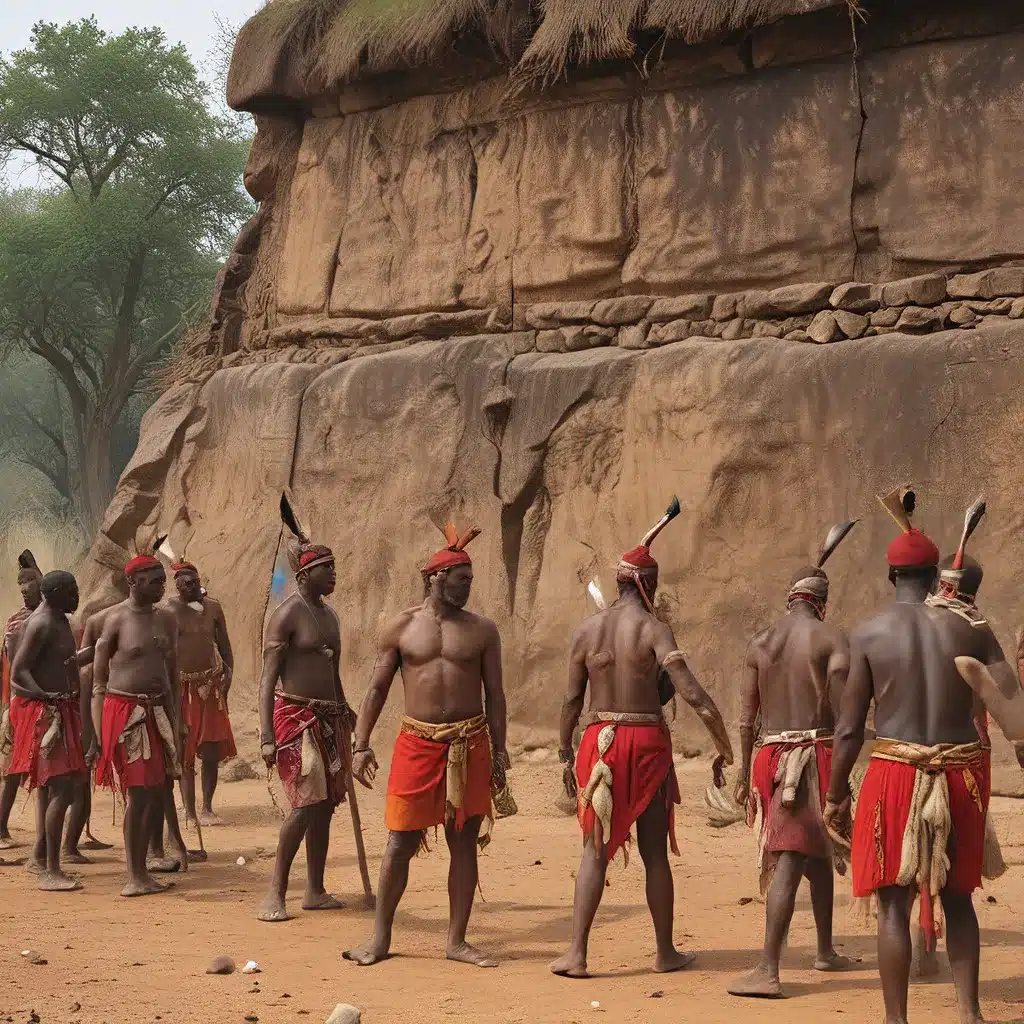
Unveiling the Mysteries of Ancient Civilizations
In the vast tapestry of human history, the stories of ancient civilizations have captivated our collective imagination. From the towering pyramids of Egypt to the intricate temple complexes of the Maya, these lost cultures have left an indelible mark on our understanding of the past. As archaeologists and historians delve deeper into the rich troves of artifacts and archaeological discoveries, they uncover not only the tangible remnants of these societies but also the fascinating worldviews that shaped their very existence.
One of the most intriguing aspects of studying ancient cultures is the recognition that their perspectives on life, death, and the relationship between humans and the natural world often differed vastly from our modern conceptions. These primal perspectives offer a unique lens through which we can reexamine our own assumptions and gain a deeper appreciation for the diversity of human experience throughout history.
Exploring Divergent Cosmological Frameworks
At the heart of many ancient civilizations lay intricate cosmological frameworks that provided a foundation for their understanding of the universe and their place within it. In contrast to the Judeo-Christian tradition’s emphasis on a linear timeline and a singular divine creator, some ancient cultures embraced cyclical or more fluid conceptualizations of time and the divine.
The Aztec and Maya civilizations, for example, were renowned for their sophisticated calendrical systems that intertwined the movements of celestial bodies with their religious and social practices. These cultures saw the universe as a dynamic interplay of forces, rather than a static creation. The Aztec concept of Teotl, a unifying principle that encompassed both the divine and the natural world, stands in stark contrast to the Western notion of a transcendent deity.
Similarly, the Mesopotamian worldview, as evidenced by the Epic of Gilgamesh, portrayed the relationship between humans and the divine as a complex negotiation, where mortality and the inevitable march of time were central themes. This perspective challenged the idea of a clearly defined separation between the earthly and the sacred, inviting us to consider more nuanced and interconnected understandings of the cosmos.
Diverse Approaches to the Afterlife
The ways in which ancient civilizations conceived of the afterlife and the rituals surrounding death also reveal profound differences from our modern perspectives. While the Judeo-Christian tradition emphasizes a linear progression from earthly life to an eternal, otherworldly existence, many ancient cultures embraced more cyclical or multifaceted views of the afterlife.
The ancient Egyptians, for instance, believed in a complex afterlife where the deceased would embark on a journey through the underworld, encountering various deities and undergoing transformations before ultimately reaching a state of eternal rest and rejuvenation. The elaborate funerary practices, such as mummification and the inclusion of grave goods, reflected a deep-rooted belief in the continuity of life beyond the physical realm.
In contrast, the Incan civilization held a more integrated view of life and death, where the ancestors were believed to play an active role in the daily affairs of the living. The reverence for the dead and the rituals surrounding their commemoration were not just about honoring the past but also maintaining a vital connection between the earthly and the spiritual realms.
Reexamining the Human-Nature Relationship
Perhaps one of the most profound divergences between ancient and modern worldviews lies in the perceived relationship between humans and the natural world. In many ancient cultures, the natural environment was not simply a resource to be exploited but rather a sacred realm imbued with spiritual significance.
The Indigenous Australians, for example, embraced a holistic understanding of the land, where the concept of “country” encompassed both the physical landscape and the ancestral spirits that inhabited it. This worldview demanded a deep respect for the natural world and a sense of responsibility for its stewardship, in sharp contrast with the Western model of environmental exploitation and resource extraction.
Similarly, the Native American tribes, such as the Lakota and the Hopi, viewed the Earth as a living, sentient being, deserving of reverence and care. Their rituals and spiritual practices were deeply intertwined with the rhythms and cycles of the natural world, fostering a sense of interconnectedness that challenges the modern human-nature dichotomy.
Lessons from the Past, Insights for the Future
As we delve deeper into the rich tapestry of ancient civilizations, we are confronted with the realization that our modern worldview is but one of many possible perspectives on the human experience. These primal perspectives, rooted in diverse cultural, spiritual, and philosophical traditions, offer us a valuable opportunity to reexamine our own assumptions and expand the boundaries of our understanding.
By engaging with the cosmological frameworks, approaches to the afterlife, and perspectives on the human-nature relationship of these lost cultures, we can gain a more nuanced and holistic understanding of the human condition. This exploration can not only deepen our appreciation for the diversity of human experience but also inspire us to redefine our own relationship with the world around us.
In an era marked by profound environmental challenges and the need for sustainable stewardship of our planet, these ancient worldviews may hold the key to unlocking new ways of coexisting with the natural world. By embracing the primal perspectives of our ancestors, we can uncover hidden wisdom and forge a path towards a more harmonious and interconnected future.
Human history is not a linear progression, but rather a tapestry of diverse narratives and divergent ways of understanding the world. By reexamining the worldviews of lost cultures, we can challenge our own preconceptions, foster empathy and understanding, and unlock new possibilities for navigating the complexities of the present and the future.
The Lost Kingdoms invites you to embark on this captivating journey of discovery, as we explore the rich and diverse tapestry of ancient civilizations and their enduring legacies.


